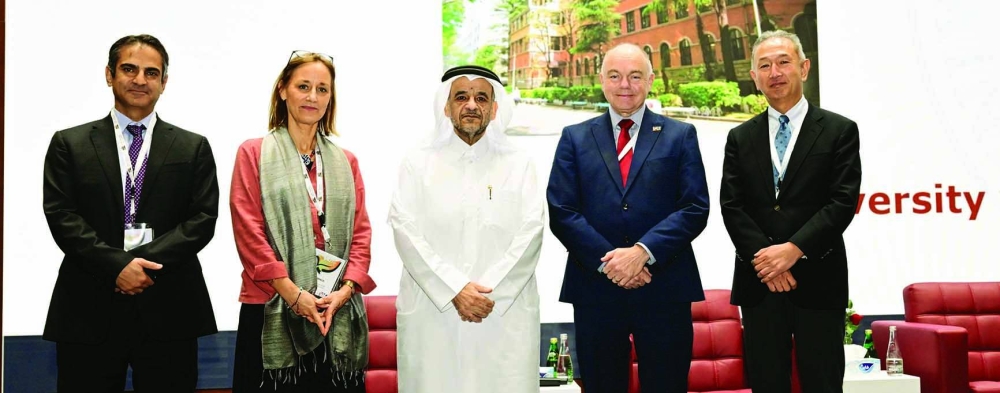Qatar University (QU) concluded Monday the International Association of Universities (IAU) 2023 Conference under the theme ‘Higher Education with Impact: The Importance of Intercultural Learning and Dialogue.’
Through sessions with over 300 participants from more than 70 countries, including 100 university leaders and 40 speakers, the event explored how universities around the world promote and support intercultural learning and dialogue, the impact geopolitics is having on this goal, and the broader implications it has for society.
QU president Dr Omar al-Ansari, said in a statement: “Through the various sessions, QU was able to showcase the diligent work of its community in research, scholarly publications and other initiatives. The conference enabled us to hear a broad range of discussions from various experts in the relevant fields, and gain breakthrough insights. We were also able to reach out to presidents from different parts of the world and exchange ideas on best practices in regulating AI impact on universities and forging intercultural competencies in students.”
Cesar Wazen, director of International Affairs Office at QU pointed out that the conference was delayed two years due to the Covid-19 pandemic. The theme was chosen to represent the embodiment of the role Qatar plays on the international scene in terms of conflict resolution and intercultural communication as well as the values that are reflected in the Qatari society as highlighted during the FIFA World Cup.
The opening plenary session of the conference was on ‘Intercultural Imperative in a De-globalizing World,’ moderated by Prof Mariam al-Maadeed, QU’s vice president for Research and Graduate Studies.
The second plenary session entitled, ‘Opening Knowledge for Humanity in an Interconnected World,’ was moderated by Phetiwe Matutu, CEO, Universities South Africa.
In the final plenary, Hilligje van't Land, secretary general of the IAU moderated a session on ‘The Impact of Geopolitics on the Future of International Co-operation,’ to discuss how higher education can counter negative trends posed by geopolitical challenges, develop new dynamics and build bridges beyond divides.
These plenary sessions took place over the course of the two days, in addition to a number of breakout sessions on the UN Agenda 2030, interconnectedness and intercultural competencies in teaching and learning and Open Science, among others.

QU president Dr Omar al-Ansari and other dignitaries at the conference.
